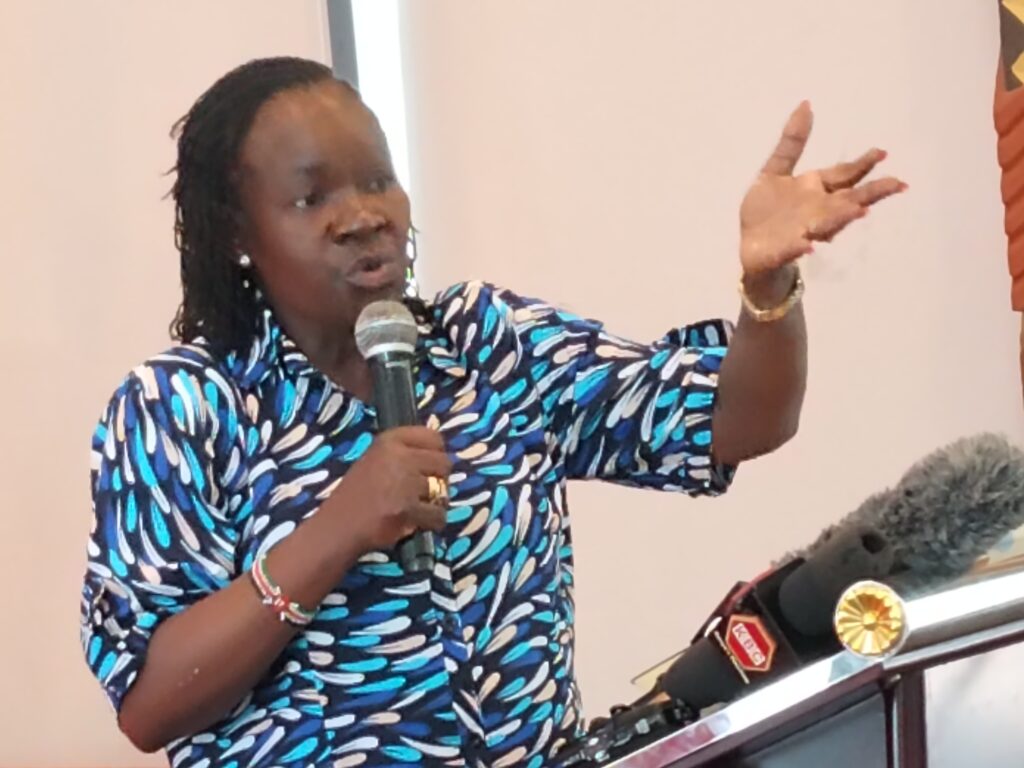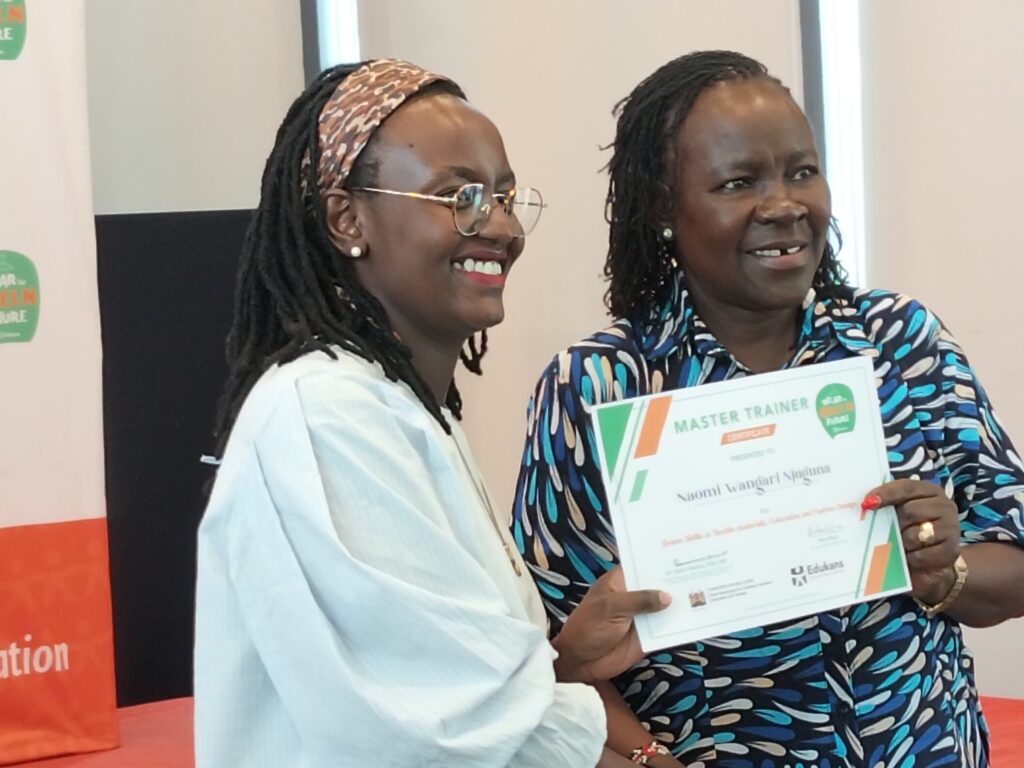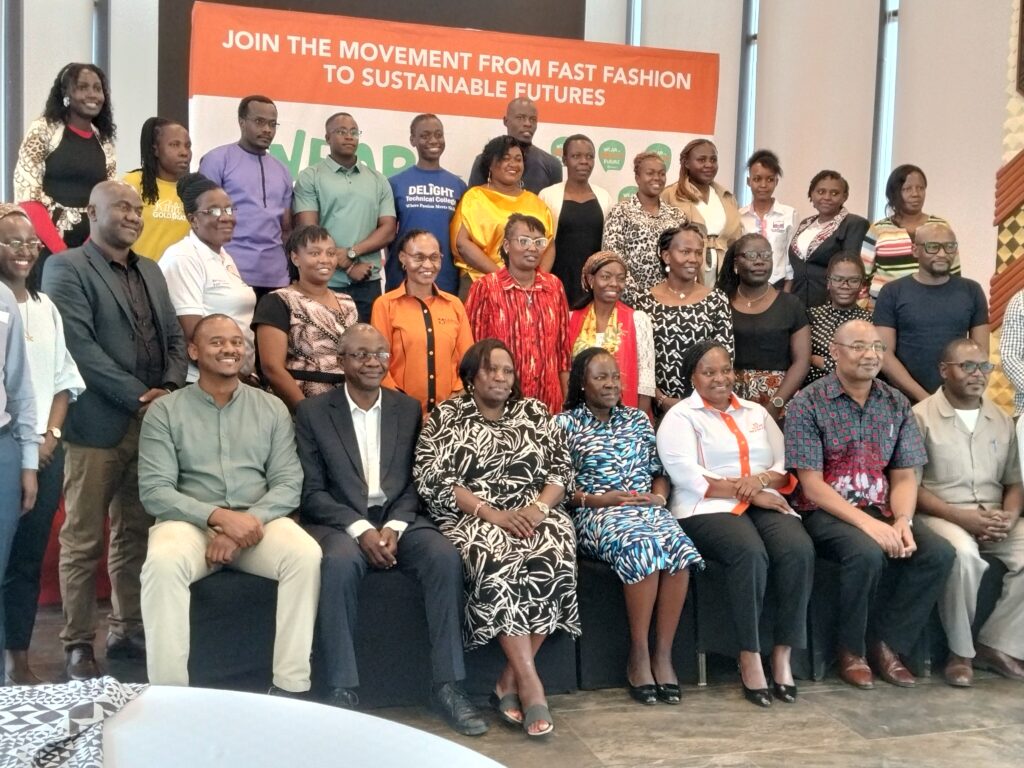Kenya Empowers TVET Students with Green Textile Recycling Skills

Techinical and Vocational Training Principal Secretary Dr. Muoria addressing Participants in Mombasa. (Photo By Mwakwaya Raymond)
By George Otieno
Mombasa, Kenya — Over 2,300 students from Technical and Vocational Education and Training (TVET) institutions and polytechnics across Kenya are set to receive training in green textile recycling, in a nationwide effort to tackle textile waste and promote environmental sustainability.
This initiative follows the successful training of 200 Trainers of Trainers (ToTs) in Mombasa, led by 20 Master Trainers from the international NGO Edukans. The trainers, now certified, are expected to cascade their knowledge to students nationwide, equipping them with practical skills in sustainable textile management.
According to The Planet Voice, the textile industry is responsible for 10% of global pollution, releasing toxic waste that significantly harms ecosystems. The new training program aims to confront these environmental challenges head-on by cultivating a generation of eco-conscious professionals in the textile sector.
Edukans County Director, Mrs. Mary Mugo, emphasized the importance of aligning training with job creation.
“If we train them and there is no industry to absorb them, we will have failed to achieve our objective. We request formalizing our cooperation,” she said.

Mrs. Mugo also announced plans to train more than 100 Small and Micro Enterprises (SMEs) in waste management and to actively promote youth participation in textile and clothing recycling.
She cited the environmental damage caused by fast fashion and disposable clothing culture, stressing the need for sustainable alternatives.
Speaking during official closing,Dr. Esther Muoria, Permanent Secretary in the State Department of Tertiary and Vocational Training, urged TVET institutions and polytechnics to seek partnerships with investors to establish industries that can employ the newly trained youth.
“Look for investors to work with you. You have the space, machinery, and technical expertise to succeed,” she said.
Dr. Muoria reaffirmed the government’s support for a green economy and encouraged collaboration between the public and private sectors to build a sustainable future.
“We must be practical. This is not a holiday destination; we are here to plan for the future,” she added, applauding Edukans’ efforts and calling for a united approach to combat textile waste.
Kenya is Africa’s largest market for second-hand clothing, locally known as mtumba, generating approximately KSh 38.5 billion annually, according to data from the Massachusetts Institute of Technology (MIT). With such a high volume of textile circulation, experts say the country’s shift toward green recycling practices is both timely and essential.

The 20 Master Trainers, who specialized in areas including textile materials, coloration, and eco-friendly fashion design, were presented with certificates of completion by Dr. Muoria, marking a significant milestone in Kenya’s green skills development journey.
As the green training initiative rolls out, stakeholders remain hopeful that it will not only reduce environmental pollution but also create meaningful employment opportunities for Kenya’s youth in the sustainable textile industry.




